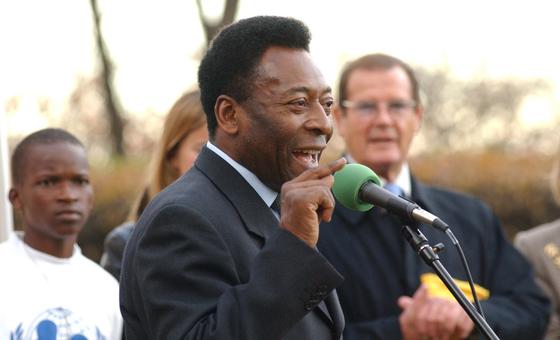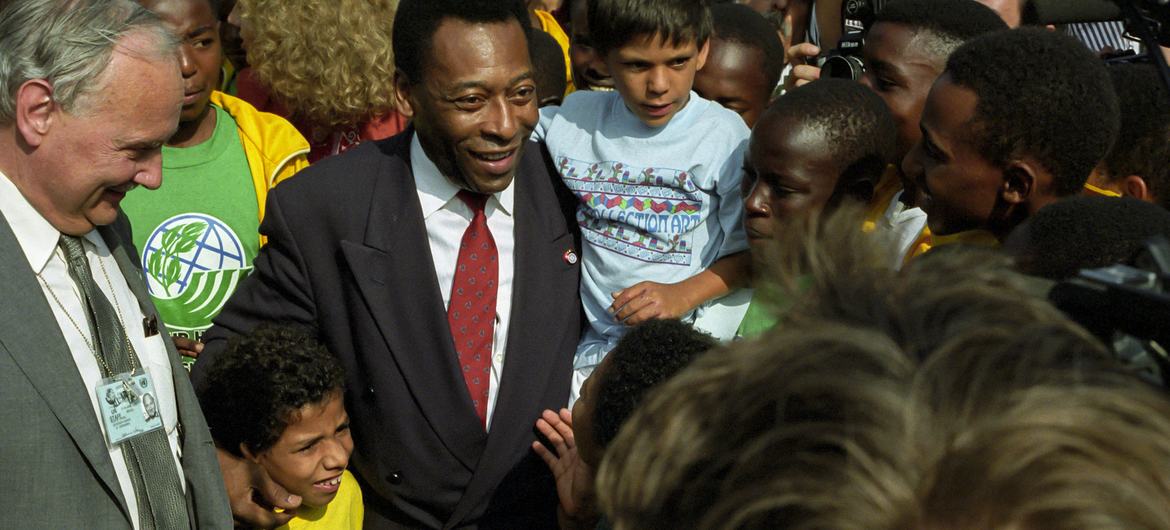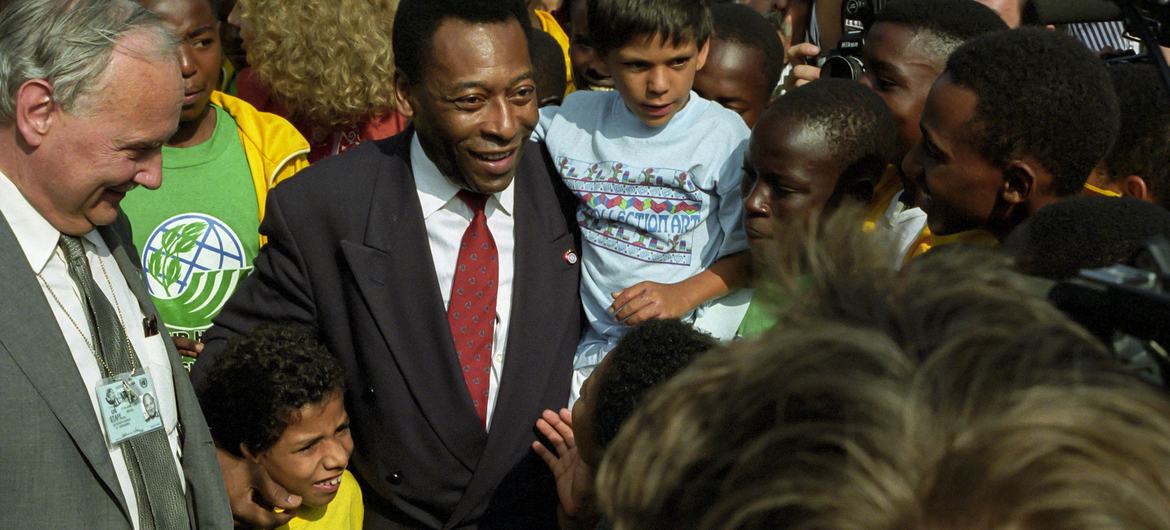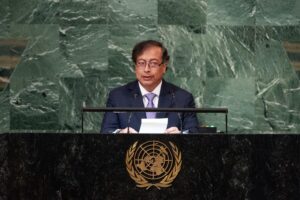
The UN education and culture organisation which champions the power of sport across the world, UNESCO, tweeted that it was “deeply saddened” at his passing, and extended condolences to the Brazilian people, and the wider “football family”.
As a 17-year-old, Pelé won his first football or soccer World Cup, in 1958, going on to lift the top trophy in the game a further two times, in 1962 and 1970. He scored a world record 1,281 goals, playing in 1,363 games during his professional career, which began when he was just 15.
Born Edson Arantes do Nascimento, in 1940, the football giant, nicknamed, “the Black Pearl”, and “the King”, retired from the game in 1977.
In 1999, the Santos player and Brazil’s most venerated star, was voted player of the century in a poll of previous Ballon d’Or winners – the players who win the annual global football award for being the outstanding performers that year.
Scoring for the United Nations
He devoted considerable time in retirement to supporting the UN and its work, both as a Goodwill Ambassador for the UN Children’s Fund UNICEF, and as a UNESCO Champion for Sport, from 1994.
He was also appointed Goodwill Ambassador for the crucial UN Earth Summit, in Rio de Janeiro, in 1992, one of the first major global development and environment summits devoted to a more sustainable future for all.
You can hear Pelé conducting a press conference ahead of the Earth Summit, from the UN audiovisual archives, here.
At the time, the Secretary-General of the Summit, Maurice Strong, described him as not only the greatest footballer in the world, but “a universal man”, rooted in Brazil.
“His commitment to people, to the planet, really distinguish him a true citizen of our earth”, he told reporters.
UNESCO said in its tweet, that he had “worked relentlessly to promote sport as a tool for peace. He will be greatly missed.”
In a tweet, the head of UN refugee agency, UNHCR, Filippo Grandi, wrote that “we are all with the people of Brazil” tonight, “celebrating a man who made millions of kids dream across continents, and generations.”

UN Conference on Environment and Development (UNCED) Goodwill Ambassador Pele (holding children) of Brazil, is greeted by children as he makes his way to Plenary Hall in Rio de Janeiro, Brazil. (June 1992)


